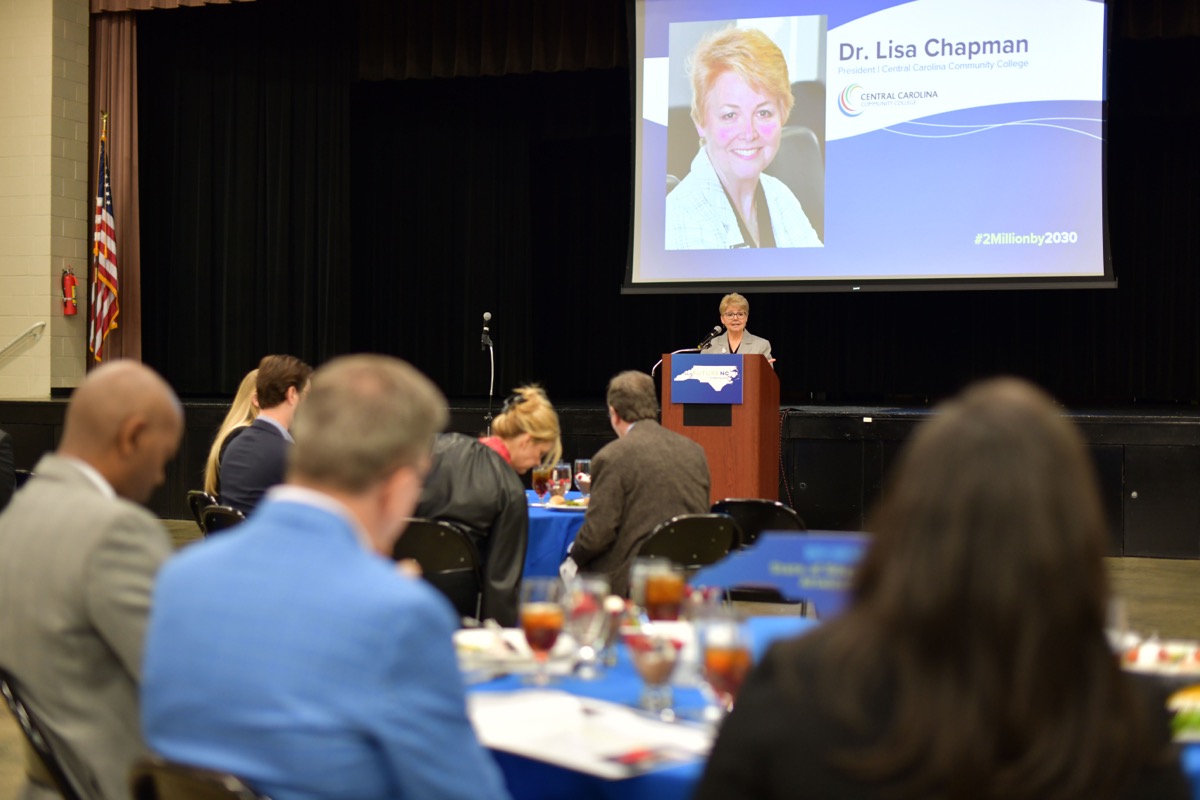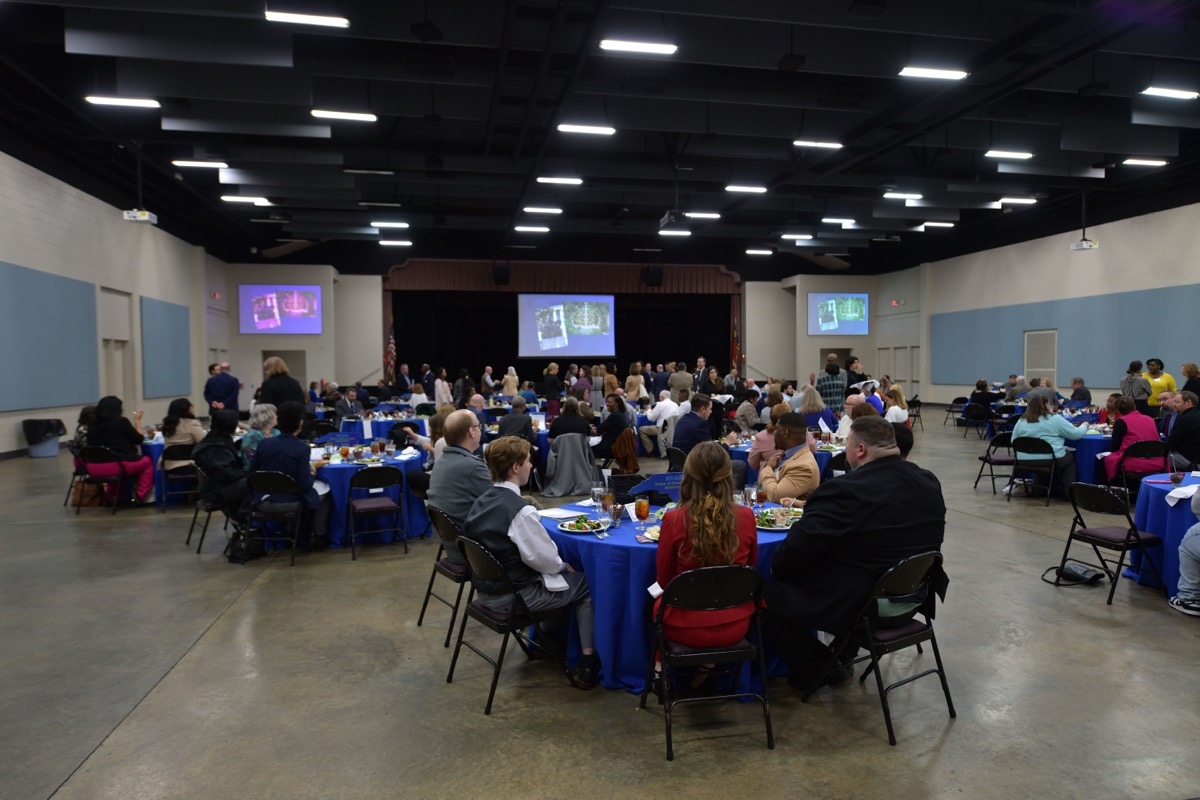College News
CCCC hosts myFutureNC event

click image to enlarge ⊗
Central Carolina Community College President Dr. Lisa M. Chapman greets regional education, government, ... (more)

click image to enlarge ⊗
Regional education, government, business, and community leaders attended the myFutureNC event at the ... (more)
02.21.2024 • College General • College & Community • Special Events
SANFORD, NC -- On Feb. 15, myFutureNC, a statewide nonprofit organization focused on building the state's future workforce and increasing educational attainment, hosted top regional education, government, business, and community leaders at Central Carolina Community College --one of eight simultaneous events taking place across the state. As part of the convening, updated information regarding the State of Educational Attainment in North Carolina was unveiled and leaders worked together to acknowledge what partnerships are working and identify targeted next steps to address the urgent need for more skilled workers to support the state's growing economy. myFutureNC alongside the NC Department of Commerce Labor and Economic Analysis Division shared and analyzed regional data to help local stakeholders determine more ways to increase educational attainment across the region, and to help move the state forward in ensuring that at least two million North Carolinians, ages 25-44, complete industry-valued credentials or postsecondary degrees by 2030 to provide a skilled workforce for current and future jobs.
According to the most recent census data, North Carolina is falling behind where it needs to be to meet the 2030 goal. The most recent data shows for every 100 ninth-grade public school students in the state, only 30 are earning a degree or credential within six years of graduating high school. And while North Carolina has increased educational attainment by four percentage points over the last three years, the state is projected to fall short by 71,000 individuals with degrees and credentials to fill jobs by the year 2030.
Across the North Central region, 565,898 people between the ages of 25 and 44 need to hold a postsecondary degree or credential to ensure the region and the state remain economically competitive now and into the future. "The number of students not achieving a degree or industry-valued credential within six years is less than a third of all North Carolina high schoolers, yet we know that two-thirds of our jobs require higher levels of education. North Carolina is losing too many of our students along this leaky pipeline, and we must do better. By tackling this at the local level, we believe this will provide solutions that are unique to each community," said Cecilia Holden, President and CEO of myFutureNC. To help address the need for a more skilled workforce, myFutureNC and partners are supporting three policy recommendations this year to help move the state toward the 2 million by 2030 goal:
- Advocacy for additional emergency assistance funds to help students persist to completion of their college degree.
- Advocacy for additional funds through NC Workforce Credentials to boost enrollment through financial aid for students pursuing industry-valued credentials, including trade jobs. As it currently stands, federal and state aid can not be used to cover non-degree credentials, making it unaffordable for students.
- Advocacy for funding to support local and regional collaboratives to pursue innovative approaches that can help increase attainment across the state.
"The exceptional career opportunities in the North Central region can only be realized if our young adults are sufficiently prepared to enter and to develop in these careers," said Dr. Lisa M. Chapman, President of Central Carolina Community College. "Engaging adult learners who have not realized all they can accomplish as well as ensuring our K-12 talent excels beyond their secondary education is critical to sustaining our current and future economic success. We must collaborate to provide the right career pathways, attract our local talent to engage in these pathways, and provide the holistic, targeted supports that will allow both adult learners and recent high school graduates to be all that NC needs them to be."
Categories
- Admin, Faculty & Staff Category
- Arts & Entertainment Category
- Clubs Category
- College & Community Category
- College General Category
- Continuing Education Category
- Curriculum Programs Category
- Distance Education Programs Category
- Facilities/Buildings Category
- Finances Category
- Foundation Category
- Graduations Category
- Lee Early College Category
- NCCCS Category
- SGA Category
- Special Events Category
- Sports Category
- Students/Graduates Category
- Uncategorized Category
Archives

